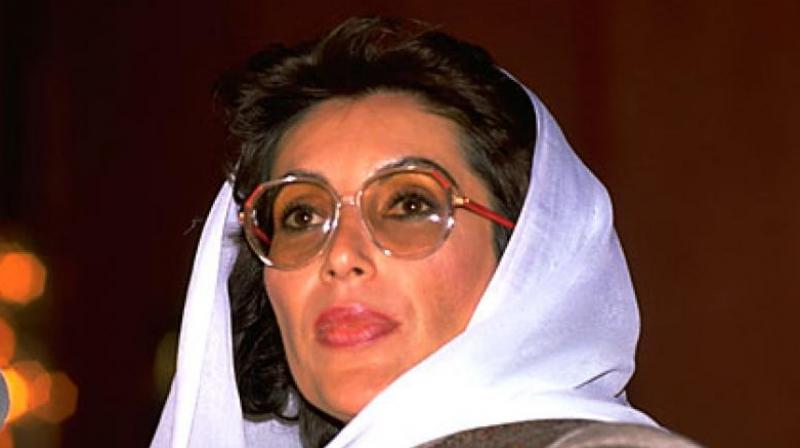A Pakistani tragedy
The BBC World Service has lately been heavily promoting a podcast titled The Assassination.

The BBC World Service has lately been heavily promoting a podcast titled The Assassination. In it, the BBC’s former Pakistan correspondent Owen Bennett-Jones delves into a calamity from 10 years ago, and holds out the prospect of hitherto unrevealed details. I look forward to listening, while obviously wishing that the catastrophe it commemorates had never occurred. Not because Benazir Bhutto’s return to Pakistan and prospective cohabitation with Pervez Musharraf would have paved the way for a smooth transition to meaningful democracy, let alone the rout of the Pakistani Taliban. But because, as in the case of her father three decades earlier, hers was not a political career that deserved to end this way.
The deep wounds inflicted on the national psyche on April 4, 1979, and Dec 27, 2007, are ineradicable . Let us not overlook Sept 20, 1996, though — the day the Karachi police gunned downed the sitting Prime Minister’s only surviving brother. I am also disinclined to share the view that Benazir’s grief at her brother’s violent demise was a put-on. The insensitive reaction of her chosen President was ungracious, and compounded not long afterwards by his dismissal of her second government. Perhaps Farooq Leghari sincerely believed he was doing the nation a favour by removing Asif Zardari from the prime ministerial abode.
During the 11 years power alternated between parties or alliances led by Benazir Bhutto and Nawaz Sharif, it wasn’t terribly difficult to choose between the two. Benazir’s return from exile in 1986 unleashed a popular wave of resentment against the tyranny of Zia-ul Haq, and there was a sense of poetic justice when she assumed power two years later. Without a clear parliamentary majority, though, and with the intelligence’s strategy having paid dividends in Punjab, Benazir felt obliged to accept the absurd conditions imposed upon her.
Benazir’s second stint in power, slightly longer than the first, was in some ways even less illustrious, distinguished as it was by the Afghan Taliban exfiltration, subsequent allegations of the Prime Minister’s personal role in nuclear proliferation, her husband’s stint as minister for investment, and a very public feud with her mother, apart from her brother’s assassination. The PPP’s relegation to a rump in the 1997 elections was a consequence chiefly of one-time supporters apparently staying home rather than switching sides. The Sharif landslide was based on an abysmal turnout.
It was hard to see Benazir as a symbol of democracy when she returned from her second exile in 2007, following an Anglo-American-mediated power-sharing arrangement with a military dictator. Becoming the first woman to be elected head of government in a Muslim country where misogyny was rife, and ruthlessly exploited by her opponents, was certainly no mean feat, notwithstanding the region’s inclination towards dynastic politics. Twenty years before his daughter, Zulfikar Ali Bhutto had harnessed a potentially revolutionary upsurge in West Pakistan, raised popular consciousness, and conquered Sindh and Punjab in the nation’s first general elections. The first year or so of the PPP government held out the promise of forward-looking social democracy. The saga of the Bhuttos is a monumental tragedy of Shakespearean proportions precisely because it encapsulates a host of character flaws and missed opportunities.
By arrangement with Dawn

